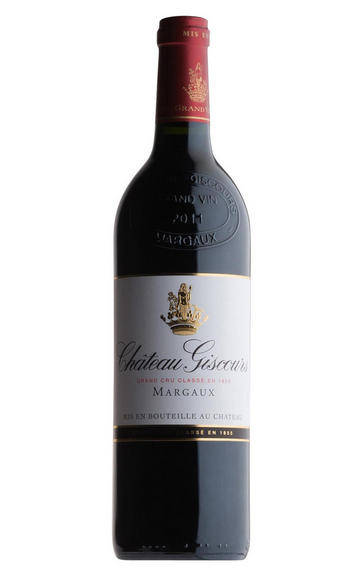
2019 Château Giscours, Margaux, Bordeaux
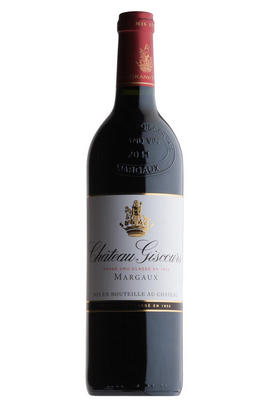
Critics reviews
Lots of deep blue fruit with blackberries and grape skins, as well as tar and asphalt. Lead, too. It’s full-bodied, yet very tight with powerful, defined tannins, surrounded by attractive ripe fruit. Serious. Reminds me of the excellent 1975. A blend of 65% cabernet sauvignon and 35% merlot.
James Suckling, JamesSuckling.com (June 2020)
About this WINE
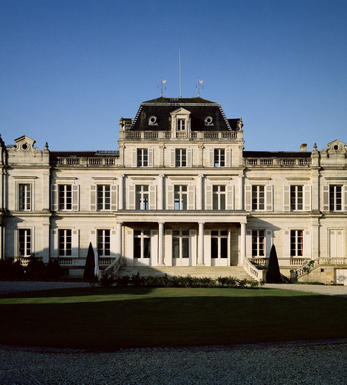
Chateau Giscours
Château Giscours is one of the largest Margaux properties and now producing wine worthy of its 3ème Cru Classé status. It is located in the commune of Labarde and has over 80 hectares of vineyards.
Giscours was in a dire state when it was acquired by Nicholas Tari in 1952. He invested heavily and the quality of the wine improved beyond recognition. In 1995 he sold up the property to Dutch businessman Eric Albada Jelgersma.
Giscours's wine is typically a blend of 65% Cabernet Sauvignon, 30% Merlot and 5% Cabernet Franc. The grapes are fermented in temperature-controlled tanks and the wine is then aged in small oak barrels (30-40% new) for 18 months.
Giscours produces richly aromatic wines that are surprisingly powerful on the palate, displaying ripe, black fruit with hints of cedar and new oak.
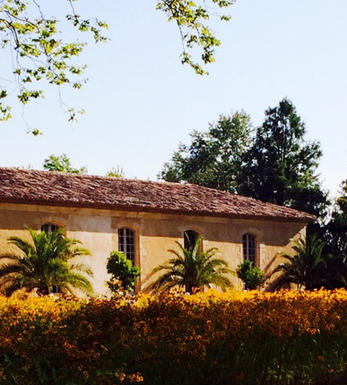
Margaux
If Pauillac can be seen as the bastion of ‘traditional’ Red Bordeaux, then Margaux represents its other facet in producing wines that are among Bordeaux’s most sensual and alluring. It is the largest commune in the Médoc, encompassing the communes of Cantenac, Soussans, Arsac and Labaude, in addition to Margaux itself. Located in the centre of the Haut-Médoc, Margaux is the closest of the important communes to the city of Bordeaux.
The soils in Margaux are the lightest and most gravelly of the Médoc, with some also containing a high percentage of sand. Vineyards located in Cantenac and Margaux make up the core of the appelation with the best vineyard sites being located on well-drained slopes, whose lighter soils give Margaux its deft touch and silky perfumes. Further away from the water, there is a greater clay content and the wines are less dramatically perfumed.
Margaux is the most diffuse of all the Médoc appelations with a reputation for scaling the heights with irreproachable wines such as Ch. Margaux and Ch. Palmer, but also plumbing the depths, with too many other châteaux not fulfilling their potential. There has been an upward shift in recent years, but the appellation cannot yet boast the reliability of St Julien. However, the finest Margaux are exquisitely perfumed and models of refinement and subtlety which have few parallels in Bordeaux.
Recommended Châteaux: Ch. Margaux, Ch. Palmer, Ch. Brane-Cantenac, Ch. Rauzan-Ségla , Ch. Dufort-Vivens, Ch. Ferrière, Ch. du Tertre, Ch. Giscours, Ch. d'Angludet.
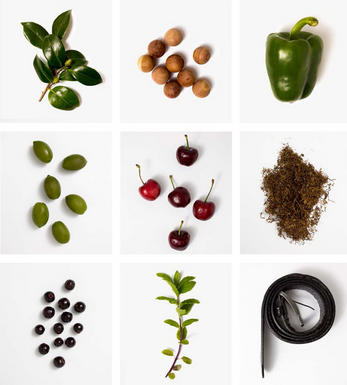
Cabernet Sauvignon Blend
Cabernet Sauvignon lends itself particularly well in blends with Merlot. This is actually the archetypal Bordeaux blend, though in different proportions in the sub-regions and sometimes topped up with Cabernet Franc, Malbec, and Petit Verdot.
In the Médoc and Graves the percentage of Cabernet Sauvignon in the blend can range from 95% (Mouton-Rothschild) to as low as 40%. It is particularly suited to the dry, warm, free- draining, gravel-rich soils and is responsible for the redolent cassis characteristics as well as the depth of colour, tannic structure and pronounced acidity of Médoc wines. However 100% Cabernet Sauvignon wines can be slightly hollow-tasting in the middle palate and Merlot with its generous, fleshy fruit flavours acts as a perfect foil by filling in this cavity.
In St-Emilion and Pomerol, the blends are Merlot dominated as Cabernet Sauvignon can struggle to ripen there - when it is included, it adds structure and body to the wine. Sassicaia is the most famous Bordeaux blend in Italy and has spawned many imitations, whereby the blend is now firmly established in the New World and particularly in California and Australia.


Buying options
Add to wishlist
Description
Lots of deep blue fruit with blackberries and grape skins, as well as tar and asphalt. Lead, too. It’s full-bodied, yet very tight with powerful, defined tannins, surrounded by attractive ripe fruit. Serious. Reminds me of the excellent 1975. A blend of 65% cabernet sauvignon and 35% merlot.
James Suckling, JamesSuckling.com (June 2020)
wine at a glance
Delivery and quality guarantee